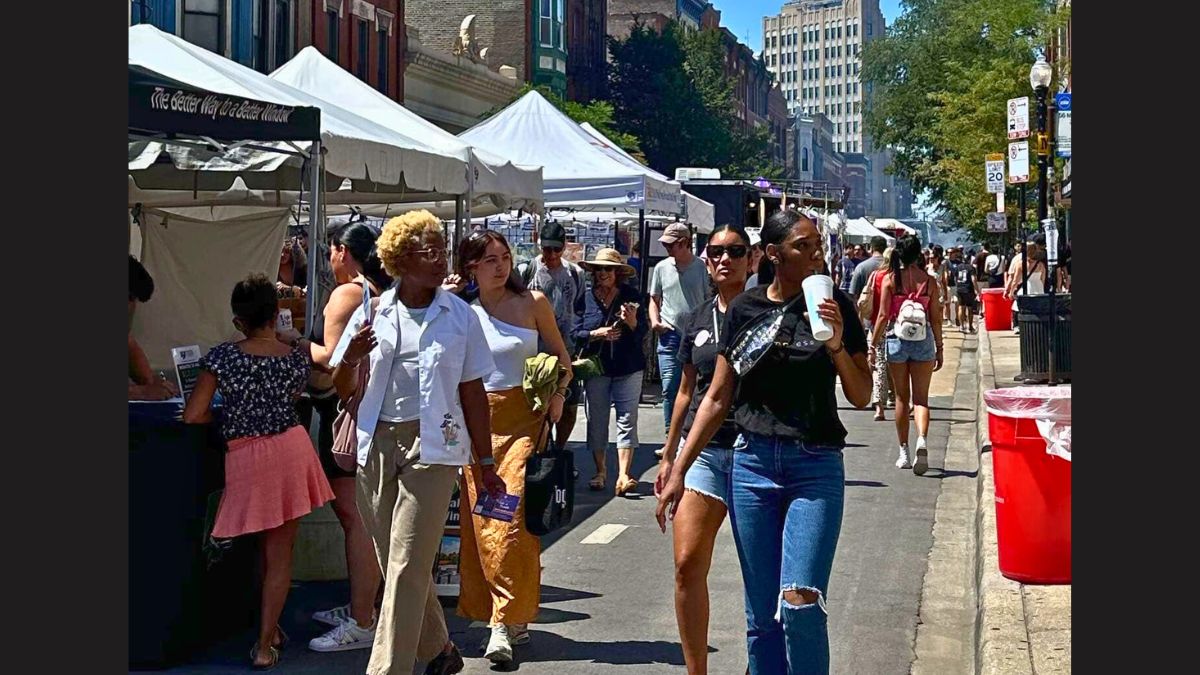Wicker Park Summer Fest (Photo Credit: Facebook).
The Chicago neighborhood street festival, that summer ritual integral to city life, is in jeopardy.
Increased expenses and dwindling donations have threatened the future of numerous festivals organized by nonprofits. According to organizers, if attendees don’t donate at the gate, it will translate to fewer live music stages, food vendors or the shuttering of small businesses that rely on these neighborhoods for revenue and exposure. It could even hurt the host neighborhoods themselves.
“Street festivals are the economic engine of our business communities,” said Pamela Maass, Wicker Park Bucktown Chamber of Commerce executive director. “Part of the reason nonprofits produce these street fests is to bring people to their business center,” she said.
“It gives a chance for the community to come together in celebration, and our businesses really rely on that exposure of what a street fest can do for our community.”
Street fests “bring people into the neighborhood to support businesses that are hotels or Bnbs and all of the different restaurants and retailers people are going to need while visiting the neighborhood,” Maass added.
The Festivals Behind the Festivals
While city-supported festivals such as Blues Fest or Gospel Fest depend on public money, local not-for-profit organizations underwrite most neighborhood festivals. These organizations must raise their own funds—typically through donations collected at the gate.
But, Maass said festival producers in her coalition noticed a shift in attitude where attendees were going out of their way not to donate at events, unaware or uninformed about where their money goes.
“We had people aggressively not donating, showing up, saying, ‘My taxes pay for this. I don’t need to donate. You can’t ask for my money,'” she said, recalling conversations with other organizers.
“My staff who works the gates were all very confused, and they’re pointing to a giant 10-foot sign that says donations go to our local Chamber of Commerce, a nonprofit that provides small business assistance.”
This dramatic change in mindset has had severe repercussions. Gate donation income for the Wicker Park Fest that her organization produces fell by half from 2023 to 2024.
“What we got in 2023 covers what I spend on entertainment. So, now I can only bring back half the entertainment based on the drop in gate donations,” Maass said. That means bringing in 30 bands instead of 60 for the popular three-day July event.
Other festivals reported similar dips, some experiencing 25% decreases in donations—still enough to impact budgets dramatically.
Increased Expenses, Decreasing Choices
The financial strain does not end at donations. Costs for entertainment and security have skyrocketed. And for festivals such as Wicker Park Fest, security is not an option.
“We have to hire private security in order to get our street permit approved,” Maass said. “Without the security, there is no event. It’s mandatory.
Maass said security expenses have risen by 30% in the last five years. And while entertainment can be negotiated on budget, security has to be done at market rate.
Organizers ended the beloved, long-running Silver Room Block Party, citing rising security costs as one of the chief causes.
Where festivals in the past were seen as a fundraising endeavor that generated a surplus, is now, at best, a break-even opportunity and, at worst, a money-losing proposition.
“Last year, we actually lost money for the first time producing this festival,” Maass said.
Municipal events receive support from city funds. Community festivals don’t.
A City of Chicago event like Blues Fest is free. While security officers do bag checks, no one asks for a donation to enter.
And although visitors might feel that purchasing from sellers benefits the festival, it does not actually work that way.
The individual business benefits, but the hosting festival doesn’t.
“If you like having a Porta Potty to be able to use the restroom after you’ve had all those beverages, you know you’ve got to make sure you take care of the host, and that is the gate donation,” said Maass.
If donations continue to decline
The ramifications could be devastating.
At the Wicker Park Fest alone, there are over 450 businesses that play a role in making it happen—from vendors and bands to stores along the way and production companies that were hired to bring it all to life. Without that weekend, it’s not only an event that goes away—it’s also a crucial part of their income. For some of these businesses, losing it could mean going from stable to completely shifting their operations to survive.
“Maybe that really would be the end of them, too,” Maass said. “So if the gate donations continue to drop, all of the businesses involved in that festival have an implication: their livelihoods, their families, and the festival itself.
And the loss would not be confined to one neighborhood.
“We have bands that come in from all over the country to our stages, and every once in a while, we’re even lucky enough to get someone internationally. So what happens if all those people stop coming to Chicago and start losing love for our beloved city?
How to help
For those unsure where to donate or when Maass has an easy request, go to saveourstreetfests.org. The site details upcoming festivals and serves as a means for other nonprofits to join the coalition she facilitated—a community-based alliance of over 20 festival producers who have one thing in common: saving Chicago’s street fests.
“If you’re a nonprofit that produces a street fest and you’re not yet a partner with us, we are still accepting organizations to join our coalition,“ added Maass.
